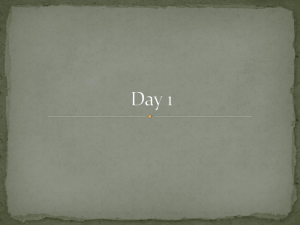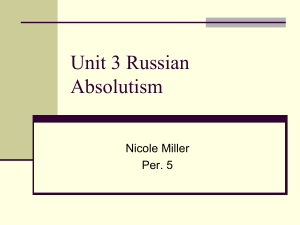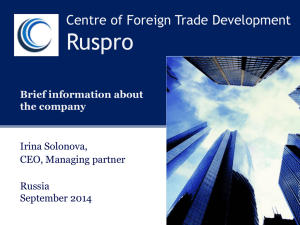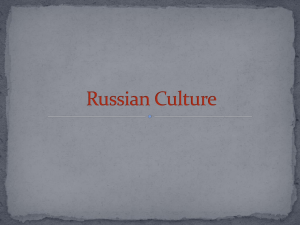Consequences of the Russian Ban on Food Products from The
advertisement
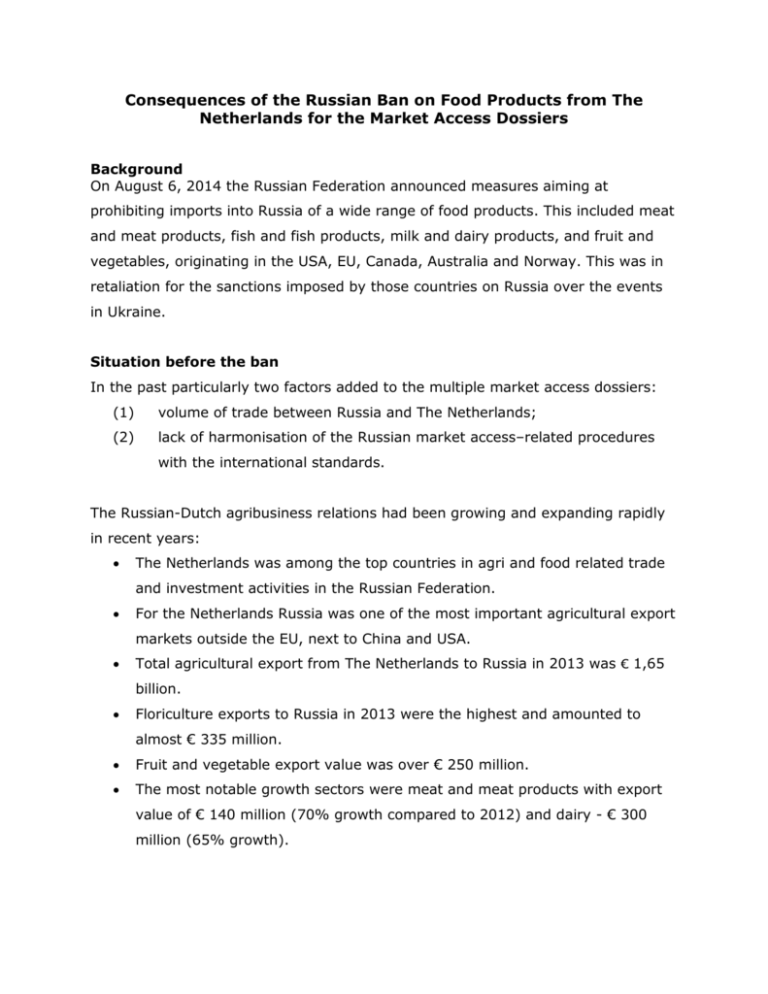
Consequences of the Russian Ban on Food Products from The Netherlands for the Market Access Dossiers Background On August 6, 2014 the Russian Federation announced measures aiming at prohibiting imports into Russia of a wide range of food products. This included meat and meat products, fish and fish products, milk and dairy products, and fruit and vegetables, originating in the USA, EU, Canada, Australia and Norway. This was in retaliation for the sanctions imposed by those countries on Russia over the events in Ukraine. Situation before the ban In the past particularly two factors added to the multiple market access dossiers: (1) volume of trade between Russia and The Netherlands; (2) lack of harmonisation of the Russian market access–related procedures with the international standards. The Russian-Dutch agribusiness relations had been growing and expanding rapidly in recent years: The Netherlands was among the top countries in agri and food related trade and investment activities in the Russian Federation. For the Netherlands Russia was one of the most important agricultural export markets outside the EU, next to China and USA. Total agricultural export from The Netherlands to Russia in 2013 was € 1,65 billion. Floriculture exports to Russia in 2013 were the highest and amounted to almost € 335 million. Fruit and vegetable export value was over € 250 million. The most notable growth sectors were meat and meat products with export value of € 140 million (70% growth compared to 2012) and dairy - € 300 million (65% growth). Lack of alignment of the Russian market access-related procedures with the international standards, among other things, lack of timely information about the measures taken, disproportionate character of measures, the lack of transparency and scientific justification for decisions in the sanitary and phytosanitary field, resulted in multiple market access problems, which were high on the agenda. These were both structural and case-by-case issues, either dealt with bilaterally or at the EU level with the EC Commission taking the lead. Current situation According to the estimates, the ban will affect 1/3 of the total agricultural trade flow to Russia. So, Russia still remains an important Netherlands trading partner on agricultural products and is a key market for many other sectors outside the ban: flower bulbs and ornamentals, live cattle and bovine semen, day-old chicks and hatching eggs, greenhouse equipment and technologies, seeds and seed potatoes, animal feed and premixes, casings, gelatine. Outstanding market access dossiers currently include: Lifting temporary avian influenza restrictions; Veterinary certificates (e.g., for fish and seafood caught by the Russian vessels and temporarily stored in NL); Import ban on seed potatoes; Cut flowers requirements as non-tariff barrier to trade; Electronic veterinary and phytosanitary certification; Informing Dutch authorities and agribusiness on prevailing legislation and regulations and procedures (certification of wood, scope of the ban for the planting material); Customs-related issues (import duties, ad hoc problems at the border); Intellectual Property Rights (law enforcement). Imposed restrictions have, certainly, had a direct and strong impact on companies operating in the respective sectors and as a consequence, some of the market access dossiers are put on hold. However, there are still procedures like updating lists of exporters of plants and plant products, follow-up on the inspection of meat and dairy establishments, or on non-compliances detected in the framework of monitoring upon import to the RF, etc., which are being maintained. The communication between the competent authorities is actively on-going, mostly, at technical level. An important aspect of the market access issues is their unpredictable character. Looking retrospectively, even during times of disturbed relations opportunities were found to secure the Dutch interests and such a scenario shouldn’t be ruled out in the future. Moreover, Russia is monitoring the domestic market situation and might consider some adjustments to the list of banned products. Conclusions The Netherlands continues to be engaged in the regular dialogue on market access issues with the Russian authorities, at all appropriate fora. With regard to products under embargo information and communication flow is maintained not to impede unnecessarily trade when the restrictions are lifted. The urgency of some of the market access dossiers is less for the time being, but they remain important and are given a high priority.






